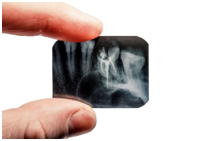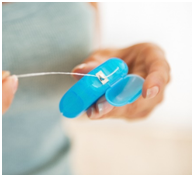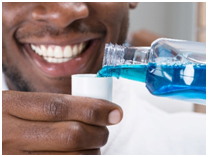Here at Maidstone Dental & Implant Centre we see patients regularly for their scheduled hygiene appointments in order to keep their gums and teeth healthy. We tailor all hygiene appointments to the needs of our patients, as some require specific help, for example denture wearers, children and teenagers with braces.
Question: How often should I visit the dentist?
To keep your teeth and gums healthy, it is important to schedule regular checkups and dental cleanings. Adult patients should visit the dentist at least once every six months. Regular dental cleanings remove stains and plaque buildup, preventing the risk of tooth decay and gum disease.
Question: How can I prevent cavities?
Cavities are permanent small holes that develop on the hard surface of your teeth. Tooth decay is associated with a variety of factors, including your dietary choices and dental hygiene routine. Brushing your teeth twice a day for two minutes and flossing once a day are the most effective ways to remove plaque buildup from between the teeth and below the gumline. Regular dental cleanings and checkups at your local dentist also support proper oral and dental hygiene, especially when combined with fluoride treatment. To minimize acid-producing bacteria that attack your tooth enamel, drink fluoridated tap water and maintain a well-balanced diet that is low in sugary or starchy foods and acidic beverages.
Question: Why does the dentist take X-rays?
X-Rays allow your dentist to look for oral health issues that may be difficult to identify with a visual examination alone.
Question: Why is fluoride important for your dental health?
Fluoride plays an important role in fighting tooth decay by making teeth more resistant to acid-producing bacteria. By drinking fluoridated tap water, using toothpaste with fluoride, or rinsing with fluoridated mouthwash, you can protect your teeth against cavities.
Question: Do I really need to floss daily?
To achieve optimum oral health, you need to floss your teeth every day. Lots of people ‘don’t like it’ or find ‘that it hurts’ but if you floss correctly it shouldn’t hurt, it’s just about making it part of your daily routine. There are also lots of different flosses and tools you can try if you find it awkward, and we are happy to advise you on finding the product that works best for you.
Question: My gums bleed when I floss, is that gum disease?
Once you begin to remove the plaque build-up the bleeding should then reduce, so it is important to keep going. If you feel pain that persists, or the bleeding doesn’t stop, you should speak to your dentist who will check the method you are using to floss as well as your oral health to see what might be causing the problem.
Question: Is mouthwash good or bad?
Mouthwash can be used as part of your oral health regime to reinforce all the good things you are doing during brushing and flossing. Most mouthwashes contain fluoride, so they work alongside your toothpaste to remineralise the teeth and help to fight cavities. Antibacterial mouthwashes that contain ingredients like Chlorexhidine or alcohol can also help to protect against gum disease.
Question: Should I see the dentist if I don’t have symptoms?
Even if you do not have any symptoms, it is still important to schedule regular dental checkups to identify minor issues before they develop into larger problems.
If you have any questions, be sure to book an appointment with us today to discuss your options. Contact Maidstone Dental & Implant Centre on 01622 682029and get the advice you need today.









